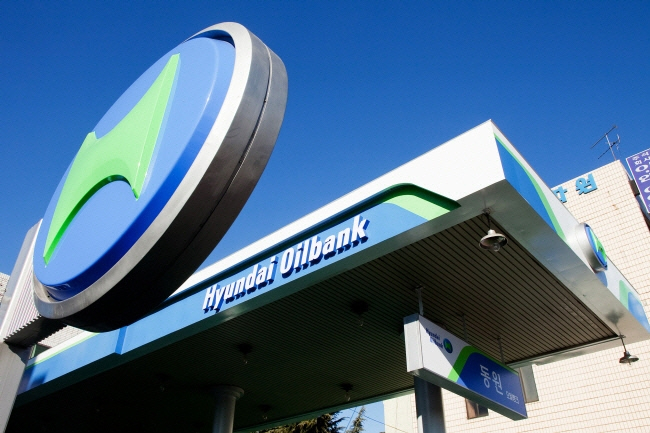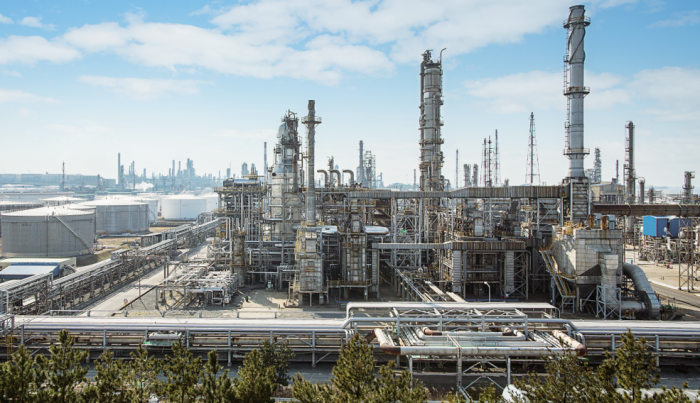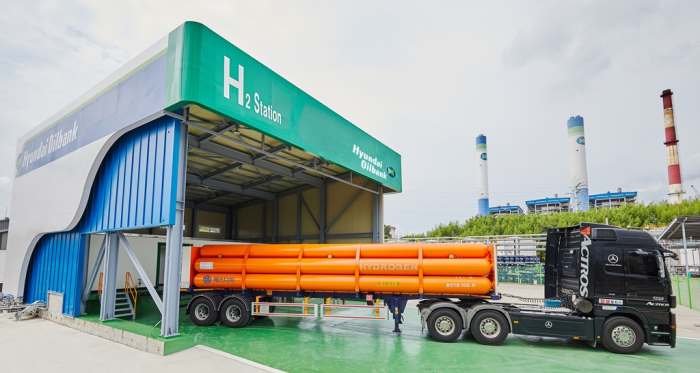
HD Hyundai Oilbank Co., a South Korean crude oil refiner backed by Saudi Aramco, is expanding its business scope beyond fossil fuel-focused operations into bioenergy and circular economy ventures.
According to industry sources on Friday, HD Hyundai Oilbank, an energy subsidiary of HD Hyundai Co., and its four affiliates, including HD Hyundai Chemical Co. and HD Hyundai OCI Co., seek business opportunities in the bioenergy and circular economy sectors.
HD Hyundai Oilbank built the country’s first biodiesel plant employing supercritical processing technology in April.
The plant has an annual biodiesel production capacity of 130,000 tons.
The company said it will actively respond to growing demand for biodiesel as countries worldwide increase biodiesel blending ratios.
In June, the company became Korea’s first domestic refiner to export sustainable aviation fuel (SAF), produced through co-processing, to Japan.
Co-processing is the use of waste as raw material, a source of energy, or both to replace fossil fuels.

SAF is an alternative fuel that can replace conventional aviation fuel.
Following the government’s announcement in August to grow the SAF industry, HD Hyundai Oilbank is also considering building an SAF production facility using hydrotreated vegetable oil, targeting completion after 2027.
In July, it exported bio-marine fuel – another Korea first among domestic refiners. The move underscores the company’s proactive advance into the emerging alternative transportation energy sector.
CIRCULAR ECONOMY
HD Hyundai Oilbank IS also looking to the circular economy sector for growth.
A circular economy involves collecting and reprocessing waste plastics, used lubricants and scrap tires to produce naphtha, propylene and base oil.
In 2021, the company processed pyrolysis oil from waste plastics at its crude refining operations to produce circular naphtha, which later was supplied to nearby petrochemical firms for the creation of new plastic products.
In March, HD Hyundai Chemical produced bio-naphtha certified by the International Sustainability and Carbon Certification (ISCC) system – the first Korean refiner to do so.

HD Hyundai said it achieved a milestone in bio-feedstock use and resource recycling by using bio-raw material-based feedstock such as waste cooking oil supplied by CJ CheilJedang Corp.
In October, HD Hyundai OCI, in its circular economy initiative, supplied circular carbon black, produced from recycled scrap tires, to Hankook Tire & Technology Co.
BIODIESEL BUSINESS
In 2022, HD Hyundai Oilbank forged a strategic partnership with food maker Lotte Confectionery Co. to jointly seek business opportunities in the biodiesel sector.
Biodiesel is a form of diesel fuel derived from plants or animals. It is a renewable, biodegradable fuel manufactured from vegetable oils, animal fats, or recycled restaurant grease.
HD Hyundai Oilbank has also tapped into the white biotechnology market, with an aim to transform into an eco-friendly company.
White bio uses living cells from plants, enzymes and microorganisms to produce energy with a lower carbon footprint.
By Seok-Cheol Choi
dolsoi@hankyung.com
In-Soo Nam edited this article.















